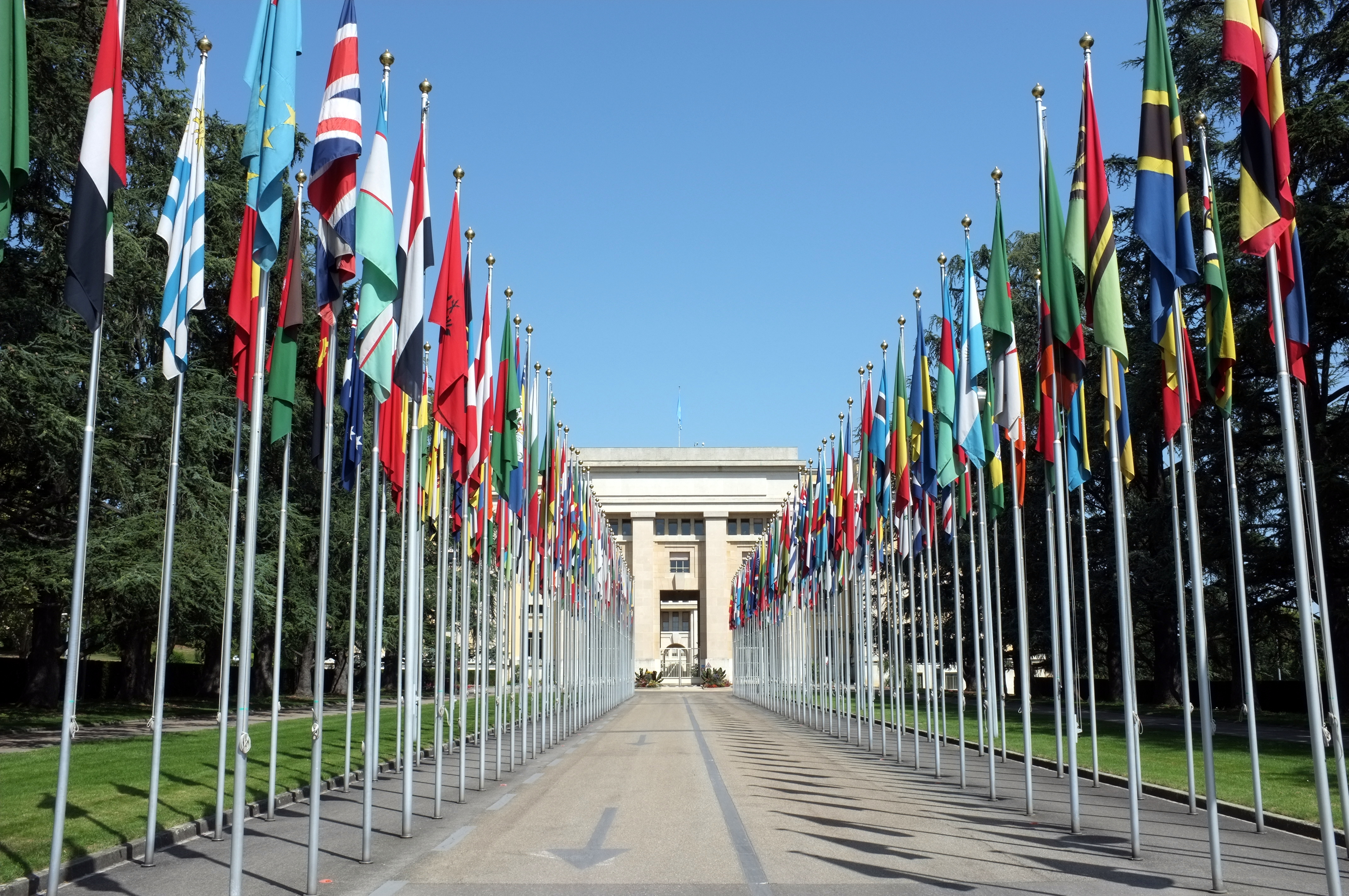13 minute read
Does Catalonia have a right to secede?
By Amandine Catala

“General strike in Catalonia” Beverly Yuen Thompson. used under: https://creativecommons.org/licenses/by-nc/2.0/
The recent Catalan referendum on independence has inevitably raised the question: does Catalonia have a right to secede? This question might be understood as either a legal or a moral question: it might be asking either whether it is legally or whether it is morally permissible for Catalonia to secede. In either case, contrary to what polarized debates may suggest, the answer is neither obviously positive nor obviously negative. Moreover, even if a legal or a moral case for secession can be made, it does not follow that Catalonia should secede. To say that secession is legally or morally permissible is not to advocate secession. Consider the analogy with divorce: to say that divorce is legally or morally permissible is not to prescribe divorce.
Regarding a legal right to secede, we can distinguish between domestic legality and international legality. Let’s start with the question of whether Catalonia has a domestic legal right to secede. Since the Spanish Constitution clearly prohibits secession, stating that Spain is ‘indivisible’, the answer might seem straightforwardly negative. Yet from the lack of a preexisting constitutional right of secession, or from a preexisting presumption of state unity, it does not follow that the secessionist group may not legally secede or that secession must be illegal. Constitutional secession clauses – i.e. constitutional clauses that explicitly provide a potential right of secession – are extremely rare (exceptions include St. Kitts and Nevis, Ethiopia, and the former USSR).
More importantly, constitutional clauses are not the only way to address secessionist claims within a legal framework or to render a secession process legal. For example, one might point to the Edinburgh Agreement in the case of Scotland and to the Supreme Court of Canada’s Reference in the case of Quebec to suggest that neither the absence of a constitutional secession clause nor a preexisting presumption of state unity need condemn secessionist projects to illegality, should they arise. The Edinburgh Agreement, signed in 2012 by both the UK and Scottish Governments, stipulates that the Scottish referendum on independence should ‘have a clear legal base’ and ‘deliver a fair test and a decisive expression of the views of people in Scotland and a result that everyone will respect’. Similarly, the 1998 Quebec Reference stipulates that ‘the Constitution is more than a written text’, whose underlying principles, including democracy and respect for minorities, ‘must inform our overall appreciation of the constitutional rights and obligations that would come into play in the event that a clear majority of Quebecers votes on a clear question in favour of secession’. Following such a vote, the text goes on, negotiations should take place between Quebec and the rest of Canada that ‘would address the potential act of secession as well as its possible terms should in fact secession proceed’. As the similar cases of Scotland and Quebec clearly show, the mere absence of a constitutional right of secession or a presumption of state unity in the Spanish Constitution need not condemn the Catalan quest for independence to illegality.
Let’s now turn to the question of whether Catalonia has an international legal right to secede. Interestingly, international law is neutral on the question of secession: it neither explicitly denies nor explicitly provides a right of secession. Still, one might turn to key international principles, such as territorial integrity or self-determination – both enshrined in the UN Charter – to shed light on the international legal permissibility of secession.

“United Nations”, xlibber. used under: https://creativecommons.org/licenses/by/2.0/
While it might seem that the principle of territorial integrity clearly precludes secession, whereas the principle of self-determination clearly supports secession, things are not quite so simple. One might think that secession is inconsistent with the principle of territorial integrity. But as the International Court of Justice (ICJ) made clear in its 2010 Advisory Opinion on Kosovo, ‘the scope of the principle of territorial integrity is confined to the sphere of relations between States’: that is, the principle of territorial integrity aims to prevent external invasion and occupation (i.e. annexation). It does not preclude internal dismantlement (i.e. secession). Indeed, one might add that the very same reason that counts against annexation counts in favor of secession. Much as prohibiting annexation prevents the imposition of membership in a new jurisdiction without due regard for the annexed group’s right of self-determination, allowing secession prevents the imposition of membership in an old jurisdiction without due regard for the secessionist group’s right of self-determination. It’s true that the principle of self-determination of peoples is typically (though not uncontroversially) interpreted in international law as entailing a right to independent statehood only for colonized peoples. Non-colonized peoples are to find alternative mechanisms of self-determination within their current state (for example, through devolution). But limiting self-determination in the form of independent statehood to cases of colonialism might appear inconsistent and arbitrary.
It is worth noting here that the international legality of secession is not the only relevant international factor to consider in the context of secession. While international law is neutral on the question of secession, a significant international complication for newly independent states formed through secession is whether they will gain the recognition of their peers, and membership in international organizations like the UN or NATO. While Australia, the US, Canada, and most European states, including the UK, have recognized Kosovo as an independent state, Spain is conspicuously absent from this list. This is significant because in the case of Catalonia secession would mean having to reapply for membership in the EU as a new state, since the successor state (that inherits prior treaties and so on) would be Spain, not Catalonia. Given that accession to EU membership requires unanimity from all current EU member states – including Spain and other countries facing their own secessionist movements – EU membership for an independent Catalonia looks doubtful.
“from the lack of a preexisting constitutional right of secession, or from a preexisting presumption of state unity, it does not follow that the secessionist group may not legally secede or that secession must be illegal”
In summary, a secession process might be handled legally at the domestic level, despite a prior presumption of state unity or the absence of a constitutional secession clause. While secession may not be viewed as illegal under international law, the likely lack of EU recognition and membership would be costly for Catalonia.
As mentioned at the outset, the right to secede might be either legally or morally construed. Thus, independently of the domestic or international legality of secession, one might ask whether Catalonia has a moral right to secede. Philosophical theories of secession have proposed different conditions under which secession is morally permissible. These theories fall into three broad camps: just-cause accounts, nationalist accounts, and choice accounts. Interestingly, in the case of Catalonia, all three types of theory would converge, holding that Catalonia has a moral right to secede, albeit for different reasons. Despite their differences, all three types of theory assume that the moral permissibility of secession requires that a majority of the secessionist group be in favor of secession. Let’s look at each type of theory in turn, going from the most restrictive to the most permissive.
According to just-cause theories of secession,[1] the moral permissibility of secession depends on how the secessionist group has been treated by the larger state – that is, on whether the larger state meets certain standards of justice and legitimacy vis-à-vis the secessionist group. Because a state’s legitimacy is contingent upon its fulfillment of certain requirements of justice (e.g. protecting human rights), it is morally permissible for a group to secede if the group has suffered a major injustice within the larger state. Possible types of injustice providing a just cause for secession include severe human rights violations, breaches of intrastate autonomy agreements, unilateral annexation, and persistent minority status. In the case of Catalonia, at least three events might point to a just cause for secession. Pre-referendum, one might point to the striking down by the Spanish Constitutional Court in 2010 of greater autonomy arrangements that formed part of the Statute of Autonomy of Catalonia that both Catalan and Spanish lawmakers had agreed upon in 2006. As previously indicated, breaches of intrastate autonomy agreements provide a just cause under just-cause theories of secession. Post-referendum, one might point to the physical violence perpetrated by Spanish police in response to an until then peaceful referendum process, and the subsequent triggering by Madrid of Article 155 suspending Catalonia’s autonomy. The respective just causes here are severe human rights violations and breaches of intrastate autonomy agreements. Because these events provide a just cause – i.e. signal a failure in the proper provision of justice that is required for state legitimacy under just-cause theories of secession – Catalonia would have a moral right to secede. Note that while these events may have taken place within the Spanish legal framework, their legality does not thereby preclude their constituting just causes for secession. The relevant realm here, for both a moral right and a just cause to secede, is (im)morality rather than (il)legality. Otherwise, even the most egregious human rights violations could not qualify as a just cause, so long as they were legal under the laws of the regime perpetrating them. Under this assumption, South Sudan would not have had a just cause for secession, and this seems clearly mistaken.
According to nationalist theories of secession,[2] the secessionist group need not have suffered injustice within the larger state for secession to be morally permissible. Rather, the secessionist group need only be a national group, where this means that the group shares a particular culture – such as a common language, history, traditions, or symbols – that is central to the group’s collective identity. As Catalonia is a clear example of a national group according to these criteria, it has a moral right to secede under nationalist theories of secession.

“Gegants i Caps Grossos a Roses. Cabezudos” Robert Plo. Used under: https://creativecommons.org/licenses/by-nc/2.0/
Finally, according to choice theories of secession,[3] the secessionist group need neither have suffered injustice nor be a national group. Rather, secession is morally permissible provided that the new state would be legitimate – i.e. willing and able to protect human rights adequately – and provided that secession would not undermine the remainder state’s ability to do the same. This normative premise – that state legitimacy depends on meeting certain requirements of justice (e.g. human rights protection) – is the same normative premise that underlies just-cause theories of secession. What explains the significantly differential degrees of permissibility between the two types of theory is the status of this premise within each type of theory: choice theories hold that state legitimacy, construed as the provision of justice, is a necessary condition to create a new state, whereas just-cause theories hold that it is a sufficient condition not to break up an existing state.[4] In the case of Catalonia, there is no reason to believe that an independent Catalan state would not be willing and able to protect human rights adequately. Indeed, we have evidence to the contrary. Prior to the referendum, Catalonia already enjoyed a significant degree of autonomy, including through its own parliament and police force, whose existence and proper functioning seem to confirm the required willingness and ability to protect human rights adequately. Under choice theories of secession, then, Catalonia would have a moral right to secede.
“Voters should also be aware that a vote in favor of secession is not a carte blanche for unilateral secession on one’s own terms, but rather requires negotiating precise terms of exit with the remainder state”
The fact that the three types of philosophical theory of secession – just-cause, nationalist, and choice theories – converge on the moral permissibility of secession in the case of Catalonia, however, does not settle the issue from the moral point of view. Further normative considerations might come into play. In particular, if what is at stake in the current Spanish-Catalan crisis is the right of Catalans to decide their own future, we must pay careful attention to the process by which that decision is made. While a referendum might seem like an obvious mechanism to survey the popular will regarding Catalan independence, at least two types of consideration should be taken into account to ascertain that the results of the referendum indeed reflect the will of the people.
First, there is a democratic requirement: a referendum will not reflect the will of the people unless a significant participation rate is met. This in turn requires that the referendum take place in peaceful conditions that allow safe access to and participation in the voting process (which was not the case with the recent Catalan referendum), with sufficient campaign time to inform the people of both sides of the issue (the Scottish case provides a good example of this).
This brings us to the second, epistemic requirement: a referendum will not reflect the will of the people unless voters know exactly what they are voting for or against, which requires, first and foremost, a clearly worded, unambiguous question (the UK Electoral Commission guidelines provide a good example of this; the question of the 1995 Quebec referendum provides a good counterexample of this). While necessary, a clearly-worded question is not sufficient. Voters should also be aware that a vote in favor of secession is not a carte blanche for unilateral secession on one’s own terms, but rather requires negotiating precise terms of exit with the remainder state (the 1998 Quebec Reference makes precisely this recommendation; recent Brexit negotiations provide a further example of this). Additionally, voters should have relevant and accurate information in order to cast an informed vote (the misinformation surrounding the pro-Brexit campaign highlights the significance of this point). Importantly in the Catalan case, voters should be aware of the impact of secession on their economy and on the viability of their post-independence state.[5] While Catalonia is a wealthy region that gives more in taxes to Madrid than it receives back (as per the name of the redistribution game), about two thirds of Catalonia’s €77bn debt is owed to Spain, and two thirds of its foreign exports go to the EU,[6] from which a newly independent Catalonia would be excluded. Given that the case for Catalan independence is built in no small part on the claim of better economic prospects post-independence, these economic factors should be included in the relevant information conveyed to voters – even if voters might ultimately deem that the political, social, or cultural stakes outweigh the economic stakes. A moral case for secession, then, would require, among many other things, meeting these two democratic and epistemic requirements.
[1] See for example Allen Buchanan, Justice, Legitimacy, and Self-Determination: Moral Foundations for International Law (New York: Oxford University Press, 2004).
[2] See for example Avishai Margalit and Joseph Raz, ‘National Self-Determination’, The Journal of Philosophy 87:9 (1990): 439-461.
[3] See for example Christopher Wellman, A Theory of Secession: The Case for Political Self-Determination (New York: Cambridge University Press, 2005).
[4] See Amandine Catala, ‘Remedial Theories of Secession and Territorial Justification’, Journal of Social Philosophy 44:1 (2013): 74-94.
[5] See Amandine Catala, ‘Secession and Distributive Justice’, Philosophical Studies 174:2 (2017): 529-552.
[6] See BBC: http://www.bbc.com/news/world-europe-41474674
Disclaimer: Any views or opinions expressed on The Ethical War Blog are solely those of the post author(s) and not The Stockholm Centre for the Ethics of War and Peace, Stockholm University, the Wallenberg Foundation, or the staff of those organisations.


